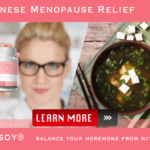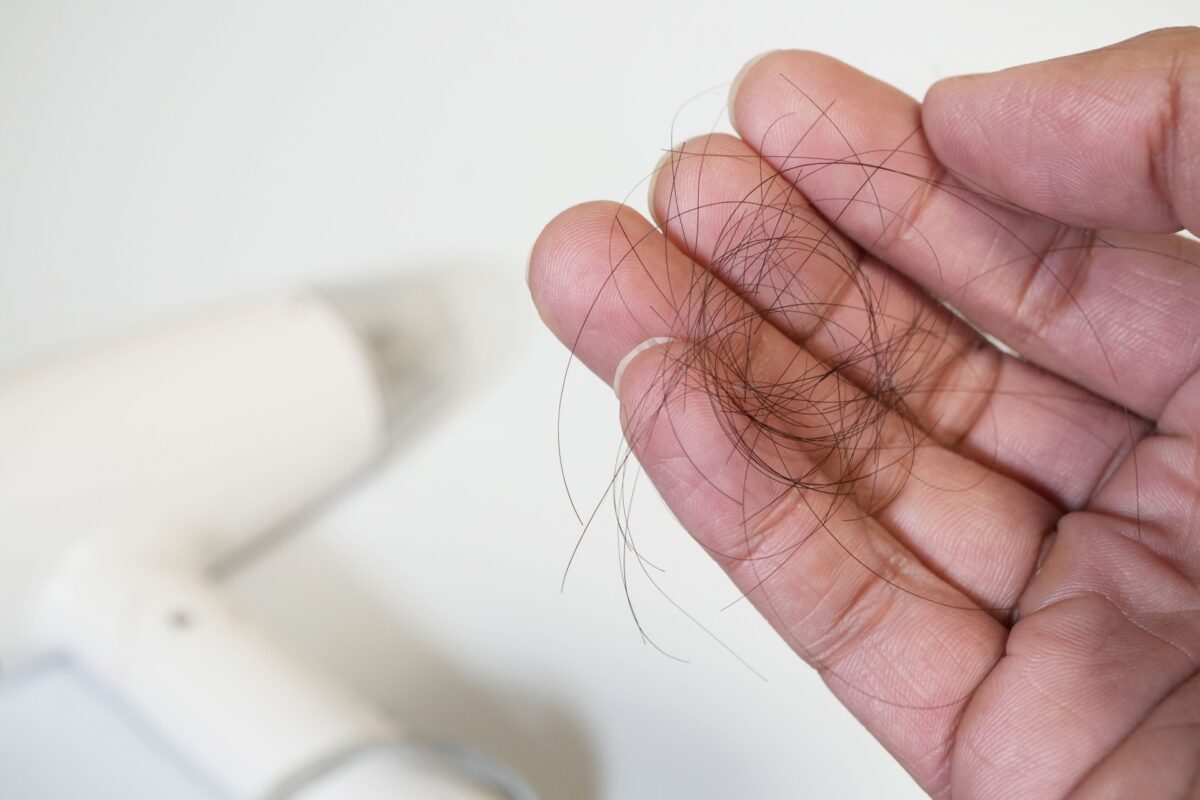Hair fall during menopause
Changes in hair volume and quality characterize hair fall during menopause. It may be one of the symptoms of menopause seen in people in their 40s and 50s.
Thinning hair in women can occur by various causes besides hair fall during menopause. It is difficult to tell the reason by looking at the initial external symptoms. You may be able to suspect hair loss during menopause if you have other menopausal symptoms like the following.
Typical menopausal symptoms
Mental symptoms
⇨ Irritability, low motivation, depressed mood, insomnia, etc.
Physical symptoms
⇨ Headache, stiff shoulders, dizziness, heart palpitations, pain in the waist and back, etc.
Symptoms related to blood vessels
⇨ Hot flashes, sweating, cold hands and feet, etc.
Major causes of hair fall other than menopause
In addition to hair fall during menopause, there are other types of hair fall such as:
Alopecia areata symptom
Illness-related alopecia
including thyroid dysfunction, iron deficiency anemia, gynecological disorders such as ovarian cysts and polycystic ovaries
Traction alopecia
The causes of hair loss in women are complex, and medical conditions may trigger it. Treatment methods vary depending on the symptoms, so it is essential first to clarify why hair fall occurs.
3 Ways to address hair fall during menopause
There are various methods to deal with hair fall during menopause, from over-the-counter hair care products to natural supplements to pharmaceuticals, as the following.
(1) Treatment to promote hair growth
(2) Hormone balancement
(3) Coping methods other than treatment
Let’s take a closer look at these three treatments.
Treatment to promote hair growth
You can use minoxidil for hair fall during menopause. It seems to have a hair growth effect regardless of gender. But, please consult your doctor before considering treatment with drugs.
Hormone balancement
Menopause is a 10-year period that includes menopause, and a decrease in the secretion of the female hormone (estrogen) causes various physical and mental symptoms, including hair loss.
You can expect recovery from the symptoms with HRT (hormone replacement therapy), which compensates for the lack of female hormones.
Types of HRT include:
Oral medicine
Transdermal medicine (patch, ointment)
There are two types, but neither is a treatment method specialized for hair fall. It is a treatment for menopausal disorders, so please be aware that you can’t directly expect hair growth.
HRT also comes with risks, which can increase the risk of breast and endometrial cancer. If you are considering treatment, have regular breast and uterine examinations.
Other possible side effects are Irregular bleeding, breast tightness and pain, birthing, firmness of the lower abdomen, nausea, etc.
We also recommend a natural supplement made of food extracts. It works moderately but far more safely.
A natural way to rebalance your hormone
Juveriente®’s Effisoy, launched in 2016, based on fermented soy bean germ extract has been loved as a natural menopause relief since its launching in 2016.
Its primary function is to boost the weakened synthesis of a hormone precursor, DHEA. It’s safe as it only heals the natural synthesis function. The hormone boost doesn’t provide the only relief from menopausal symptoms. But, it also supports various aging issues and increases metabolism, which leads to weight loss.
Here are some of the real product reviews in our Amazon shop.
“Restful sleep finally!!”, “I Am Now Free of Hot Flashes!!”, “Lifesaver”
Coping methods other than treatment
As a coping method that does not use pharmaceuticals,
wig
hairpieces
There are effective ways to hide thinning hair on the parting and parietal area.
There are also reports that the QOL of women who use wigs or hairpieces improved, so using them as a temporary measure is one option. However, it will be better to consider that wigs and hairpieces are not real solutions to hair fall during menopause. It’s just a “hidden state.” Depending on the quality, the scalp environment may be disturbed due to stuffiness, and hair fall may worsen. Also, maintenance costs are higher than generally expected. It may exceed the price of medical treatment.
The following article will discuss lifestyle habits to prevent menopausal hair loss.




